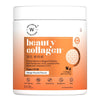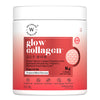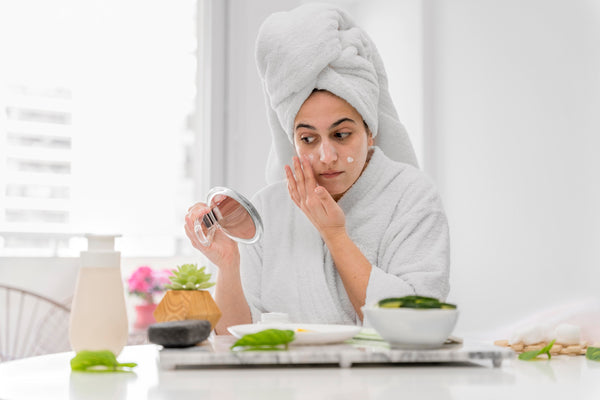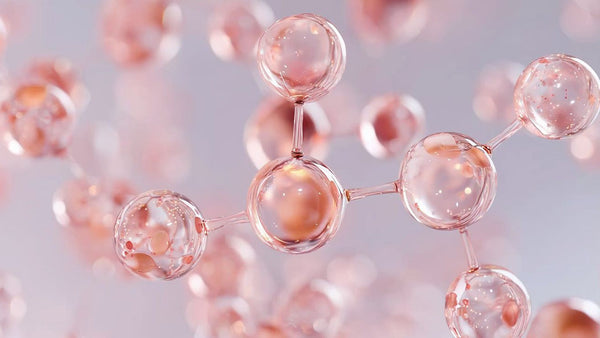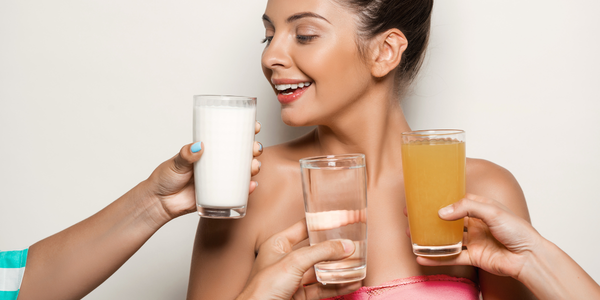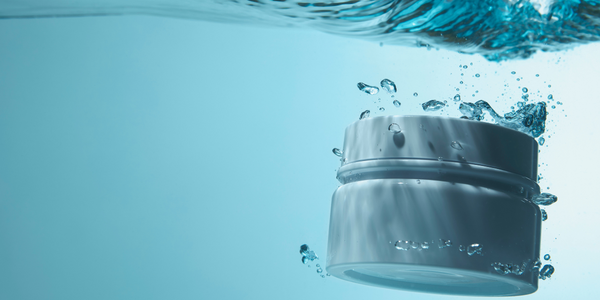"Flawless skin" — the word that immediately grabs everyone's attention because we're all eager to figure out how to get rid of skin problems as soon as possible. Maintaining healthy and radiant skin is a top priority for many individuals, as it plays a crucial role in both physical appearance and overall well-being. Sadly, there are no quick fixes when it comes to getting that ‘flawless’ skin. When we think of skincare, the two primary approaches in our daily skincare routine come to mind: skin supplements like collagen and topical skincare products like serums and moisturizers.
Collagen has gained popularity in recent years as a way to enhance skin health from within. Beauty collagen supplements are a great way to support the body's collagen production while also promoting youthful-looking skin. On the other hand, topical skincare often contains a range of active ingredients, such as antioxidants, hyaluronic acid, vitamins, etc., that aim to address specific skin concerns like acne, dryness, or aging. Let’s explore both approaches for a daily skincare routine—external and internal—and uncover what’s more effective in the long run.
What is the hype about collagen?
Collagen is a complex protein that makes up a significant portion of our skin, bones, tendons, ligaments, and other connective tissues. It gives our tissues structural support and elasticity. There are several types of collagen in the human body, but the most abundant ones are types I, II, and III. When it comes to beauty collagen supplements, marine collagen is considered the best collagen. It is known for its high bioavailability, which refers to its ability to be easily absorbed and utilized by the body. Collagen supplements are often considered beneficial because our bodies tend to produce less collagen as we age. This decrease in collagen production can lead to various age-related issues, such as wrinkles, joint stiffness, and decreased skin elasticity.
Why is collagen known so widely for skincare?
One of the reasons marine collagen is favored is due to its unique amino acid profile. It contains a higher concentration of the amino acids glycine, proline, and hydroxyproline, which are essential for collagen synthesis. These amino acids play a crucial role in supporting the production of new collagen fibers in the skin, helping to improve its elasticity and firmness.
Furthermore, marine collagen has been found to have a smaller molecular size compared to other collagen sources, which may enhance its absorption and bioavailability. This makes it easier for the body to break down and utilize the collagen peptides. Apart from being beneficial to our skin health, it is also rich in antioxidants, micronutrients, and fatty acids, making collagen an all-rounder. Some studies suggest that collagen supplementation improves skin elasticity, and hair and nail health, promotes joint health, and supports overall tissue repair and regeneration.
Let’s get to topical skincare!
Topical skincare has, interestingly, gained a lot of momentum since the pandemic. While our topical skincare routine would usually be a simple face wash, moisturizer, and sunscreen combination, it now ranges from toners and moisturizers to serums, masks, and exfoliation treatments, each formulated with specific ingredients and targeted purposes. The effectiveness of topical skincare products relies on the active ingredients present in these products. Some common active ingredients found in skincare formulations include retinoids, hyaluronic acid, vitamins B and C, antioxidants, peptides, alpha hydroxy acids (AHAs), and beta-hydroxy acids (BHAs).
Why is topical skincare so common?
Topical skincare products offer numerous advantages for the skin. To begin with, they offer a focused approach by targeting specific skin concerns such as acne, dryness, hyperpigmentation, or signs of aging. This enables individuals to tailor their skincare routine according to their individual needs. Additionally, skincare products undergo rigorous scientific research and testing, guaranteeing their effectiveness and safety. This instills confidence in their ability to deliver the desired outcomes.
Moreover, moisturizers and serums assist in replenishing and maintaining skin moisture, leading to a well-hydrated, supple, and youthful appearance. Apart from this, regular use of exfoliants and treatments can refine the skin's texture, minimize pores, and even out skin tone, leading to a smoother and more radiant appearance. Lastly, skincare products with SPF provide crucial protection against harmful UV rays, reducing the risk of sun damage and premature aging.
The power of both internal & external skincare
Combining both internal and external approaches create a holistic and comprehensive approach to improving skin health. Internal factors influence the overall health of the body, which reflects on the skin's appearance. Conversely, external care provides targeted support, addresses specific concerns, and enhances the skin's vitality. Here's why each approach is essential:
1. Internal Approach:
a) Nutrient Supply:
A balanced diet provides essential nutrients like vitamins, minerals, and antioxidants that support the skin's health and appearance. These nutrients play a crucial role in collagen production, maintaining skin elasticity, and protecting against oxidative stress. Consistently consuming a variety of fruits, vegetables, whole grains, nuts, lean proteins, and healthy fats contributes to healthy skin. Fusing this healthy diet with an effective Japanese collagen supplement along with an effectual daily skincare routine can take the health and quality of your skin from drab to fab!
b) Hydration:
Proper hydration ensures that the skin remains moisturized, supple, and functioning optimally. Drinking enough water helps flush out toxins, improves circulation, and supports the skin's natural processes.
c) Quality Sleep:
During sleep, the body repairs and regenerates itself, including the skin. Sufficient sleep allows for the renewal of skin cells, collagen synthesis, and restoration of the skin's barrier function.
2. External Approach:
a) Skincare routine:
A consistent skincare routine tailored to individual skin types helps cleanse, moisturize, and protect the skin. It addresses specific issues like acne, dryness, aging, and hyperpigmentation, providing targeted solutions.
b) Sun protection:
Protecting the skin from harmful UV rays is crucial for preventing sun damage, premature aging, and reducing the risk of skin cancer. Sunscreens and protective clothing shield the skin from UV radiation.
c) Avoiding harsh chemicals:
Using gentle and non-irritating skincare products minimizes the risk of skin irritation, allergies, and disruption of the skin's natural balance.
Wrapping up
Combining beauty collagen and topical skincare provides a comprehensive approach to skin health. By embracing the best of both worlds through internal supplementation and external application, individuals can achieve balanced and holistic results. But remember, consistency is key to proving the effectiveness of skincare products and supplements. We hope this helps you get your glow on!
—
References:
https://www.ncbi.nlm.nih.gov/pmc/articles/PMC8824545/








